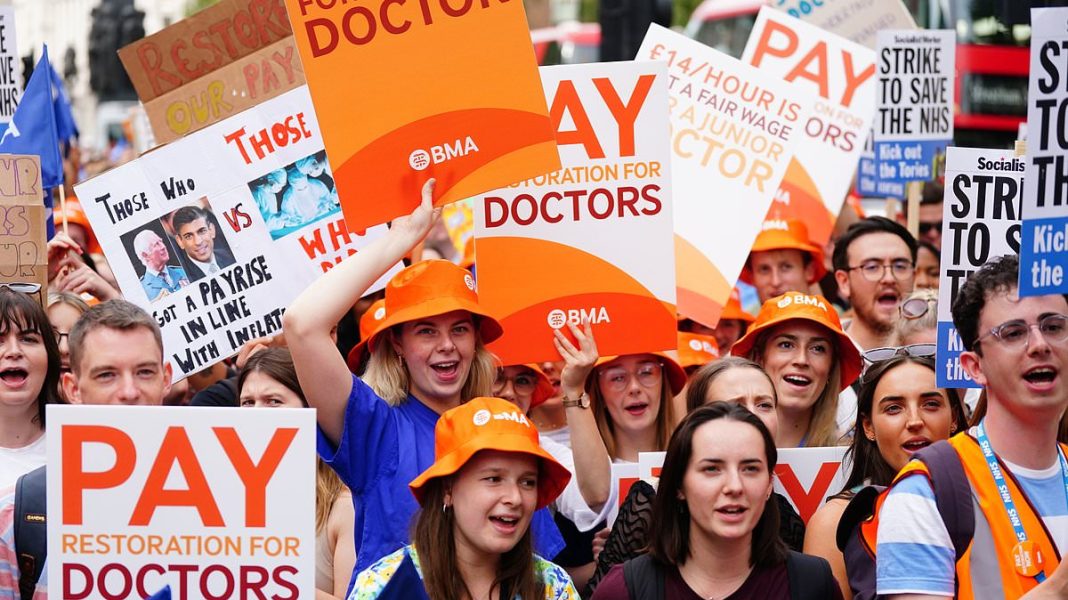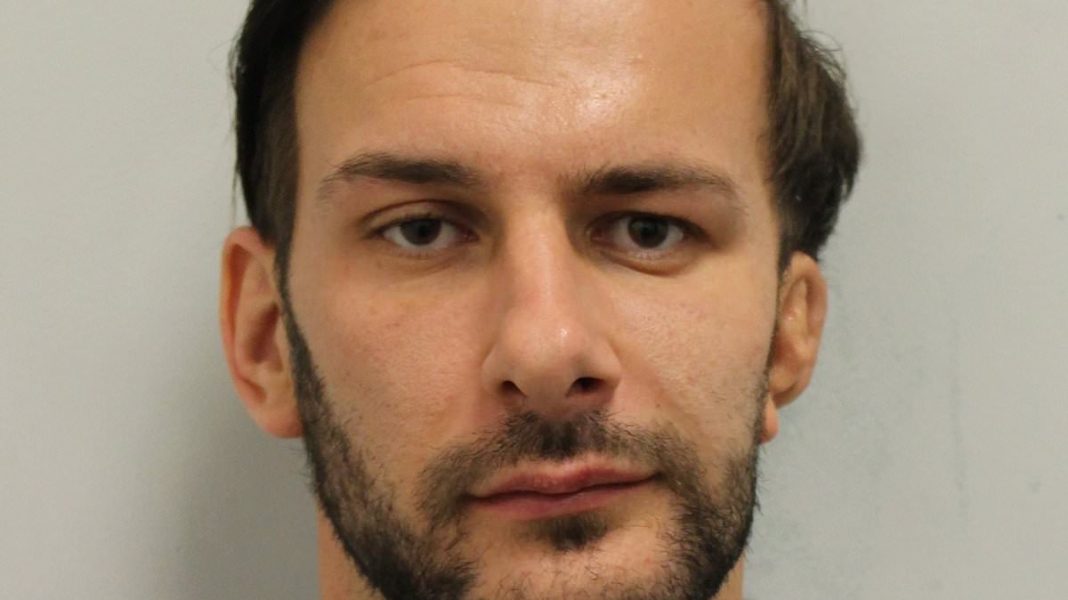Doctors ‘excited’ by strikes – after biggest public sector pay rise,
Leading doctors have sparked fury by admitting they are ‘excited’ by the prospect of further strikes despite the risk of patient harm.
The British Medical Association is threatening a mass walkout by resident doctors and consultants unless the Government caves in to its pay demands.
Failing to do so will undermine efforts to cut waiting lists and Labour’s ten-year plan for the NHS, which is due to be published next week, the union added.
Resident doctors – previously known as ‘junior’ doctors – are currently balloting members to secure a mandate for six months of strikes.
They have crippled the NHS by taking industrial action 11 times since 2022, forcing health bosses to cancel an estimated 1.5million appointments.
Speaking at the BMA annual conference in Liverpool, Dr Ross Nieuwoudt, co-chair of the BMA’s resident doctors committee, said: ‘In Liverpool, everyone I talk to has already returned their ballot. In places in the peninsula, it maybe a little bit less.
‘But in general, and what we’re hearing overall, the vast majority, is that people are excited to go again.
‘People are still underpaid, and recognising that. People are having other concerns as well, such as the under- and unemployment issues facing them with the training bottlenecks.
‘So there’s a huge amount of issues, and ultimately, doctors are still very upset and looking for change.’
When questioned on his use of the word ‘excited’, he added: ‘Sorry – excited as in energised. Not excited as in looking forward to it.
‘They want to push for change. Their cries have fallen on deaf ears.’
Resident doctors have already received above inflation pay rises for the past three years, worth an extra 28.9 per cent in total.
This includes an inflation-busting rise this year of 5.4 per cent, which is the most generous in the public sector.
Dr Nieuwoudt last month admitted their inflation-busting pay rise is ‘generous’ just days after urging union members to back the strikes in pursuit of an additional 30 per cent.
If members support the strikes, it will give them a mandate for walkouts from this July to January next year.
Patients Association has said it is ‘deeply concerned’ about the prospect of further walkouts, warning it causes ‘significant distress, pain and worsening health for patients.’
Dennis Reed, director of Silver Voices, which campaigns for elderly Britons, said: ‘Patients facing long waits for care will not share resident doctors’ “excitement” about the prospect of further disruptive strikes and are instead likely to be filled with despair.
‘Such gloating language does not indicate resident doctors are wanting to reach a reasonable settlement. It sounds more like student politics, where they are wanting to strike for striking’s sake.
‘We would like the BMA and government to settle this dispute so patients can get the care they need when they need it.’
Meanwhile, consultants will be asked if they would support strikes in an indicative ballot, due to open next month.
Professor Phil Banfield, chair of the BMA Council, said the Government ‘need doctors’ and would have to ‘pay doctors properly’.
‘They need doctors. The ten-year plan is not going to be delivered just by artificial intelligence and apps. I sat through a briefing about the ten-year plan last week, and it’s, at the moment, it’s lacking detail. I’m bemused at the moment as to how it’s going to deliver.
‘They won’t get through their waiting lists unless they pay doctors properly and fairly, and you value them for the expertise they need.’
Dr Helen Neary, co-chair of the BMA’s consultants committee, said: ‘In terms of implementing a ten-year plan, and any of the changes that are needed for that, that cannot be achieved without consultants being part of that conversation and being integral to those changes in services and how care is delivered to patients.
‘Without recognising that a consultant is essential in terms of moving those things forwards, I think it’s going to be very challenging to get all of the changes that the government would want to be enacted.
‘The way that government can make sure that that continues is to meet with us and to develop with us and negotiate a path to pay restoration.’
She added it would also be ‘challenging’ for the government to meet its pledge to cut waiting times for elective care if consultants strike.
Consultants and resident doctors say their pay has fallen in real terms despite recent pay rises.
The BMA has ramped up security at its annual conference after Jewish doctors complained they felt ‘intimidated and unsafe’.
Members highlighted that 43 motions submitted for debate during the three-day meeting – one in ten of the total – related to Israel, Palestine or Zionism.
Just five were concerned about other ‘international relations’, the Jewish Medical Association said.







